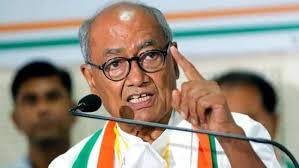India’s economic inequality worse than during British raj, says study
 New Delhi: The recent World Inequality Database report has revealed that India’s economic inequality has reached levels worse than those experienced during the British Raj era.
New Delhi: The recent World Inequality Database report has revealed that India’s economic inequality has reached levels worse than those experienced during the British Raj era.
According to Kashmir Media Service, despite boasting impressive infrastructure and economic growth, the country is grappling with staggering income and wealth disparities, raising concerns over the sustainability of such inequality.
The comprehensive study titled “Income and Wealth Inequality in India 1922-2023: The Rise of Billionaire Raj,” authored by Nitin Kumar Bharti, Lucas Chancel, Thomas Piketty, and Anmol Somanchi, sheds light on the alarming concentration of wealth among the top echelons of society. Drawing on various data sources, including national income accounts, tax records, and surveys, the report presents a sobering picture of India’s economic landscape.
Since independence, India witnessed a decline in economic inequality until the early 1980s. However, the trend reversed, with inequality skyrocketing since the early 2000s, reaching unprecedented levels by 2022-23. The report highlights the emergence of what it terms the “Billionaire Raj,” where the top 1% holds a staggering 22.6% of income and 40.1% of wealth, surpassing levels observed in countries like South Africa, Brazil, and the United States.
Citing the period between 2014-15 and 2022-23, the report underscores a concerning trend of wealth concentration, particularly under the tenure of the Narendra Modi government. This phenomenon, attributed to “crony capitalism,” accentuates the need for urgent measures to address growing inequality.
The report recommends a comprehensive overhaul of the tax regime to encompass both income and wealth. It proposes higher public investments in critical sectors such as health, education, and nutrition to mitigate the adverse effects of inequality on society.
A key recommendation put forth by the paper is the implementation of a “super tax” of 2% on the net wealth of the wealthiest families, which could generate substantial revenue to fund essential public services. Additionally, the report underscores the global implications of India’s economic disparities, emphasising the need for improved access to official data and greater transparency to facilitate informed policy decisions.
Expressing deep concern over the ramifications of extreme inequality, the report warns against the disproportionate influence wielded by concentrated wealth on society and governance. It raises alarms about the integrity of democratic institutions, noting a concerning trend of compromised governance in recent years.
The report calls for urgent action to address India’s widening wealth gap, stressing the importance of safeguarding democratic principles and fostering inclusive economic growth. Failure to address these challenges risks undermining India’s democratic fabric and exacerbating social tensions, ultimately hindering its progress on the global stage.








